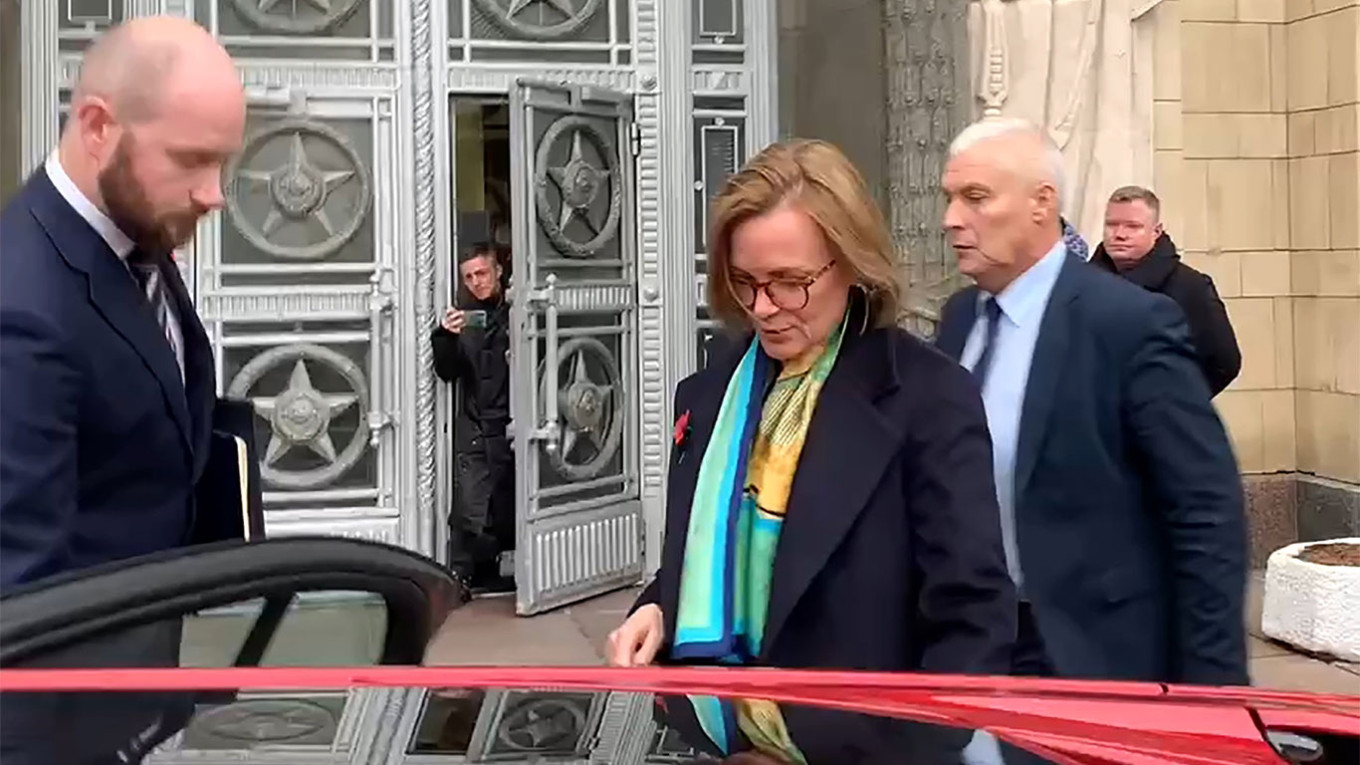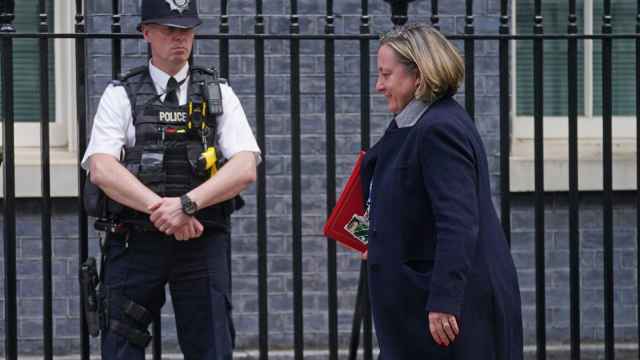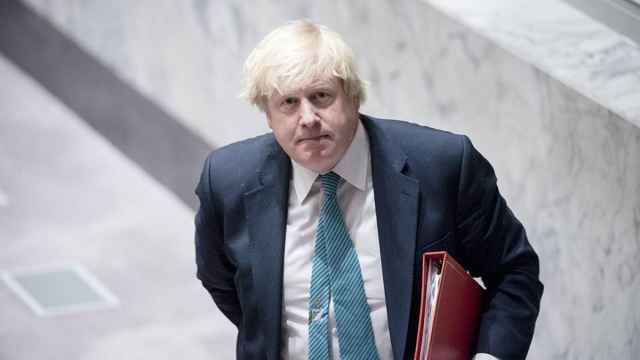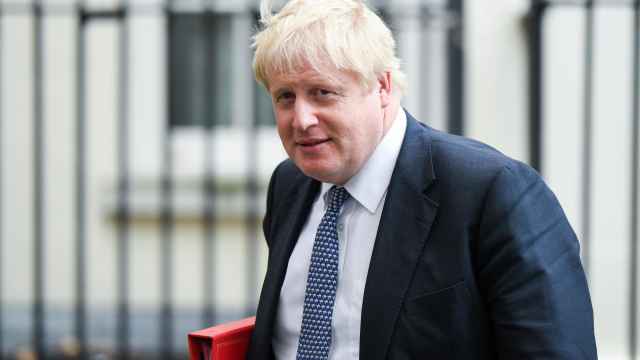Russia summoned the UK ambassador to Moscow to the Foreign Ministry on Thursday and warned London of "dangerous consequences" after accusing it of helping Kyiv carry out an attack on Moscow's Black Sea fleet in Crimea last week.
"Such confrontational actions of the English carry a threat of escalation of the situation and could lead to unpredictable and dangerous consequences," the Foreign Ministry said in a statement.
Moscow said it had delivered a "strong protest" to U.K. ambassador Deborah Bronnert.
It claimed British forces were training Ukrainian special services, including for "sabotage operations at sea."
On Saturday, Russia accused the U.K. of helping Kyiv orchestrate a drone attack on its ships in the port of Sevastopol in Moscow-annexed Crimea.
Bronnert arrived at Moscow's towering Soviet-era Foreign Ministry building, with a line of people chanting "Britain is a terrorist state," state media showed.
The Foreign Ministry said it had handed "concrete facts" of London's "hostile provocations" to her.
"A demand was put forward to stop them immediately," it said, adding that U.K. military specialists were training Ukrainian special forces in the southern city of Ochakiv, "including training for underwater saboteurs for operations in the waters of the Black and Azov seas."
Russia last week also accused the U.K. of being implicated in explosions on the Nord Stream pipelines in September.
The U.K. says these are "false claims on an epic scale."
Relations between London and Moscow have been deteriorating for years. Russia considers the U.K., one of Ukraine’s strongest backers, to be one of the least friendly Western countries to its interests.
A Message from The Moscow Times:
Dear readers,
We are facing unprecedented challenges. Russia's Prosecutor General's Office has designated The Moscow Times as an "undesirable" organization, criminalizing our work and putting our staff at risk of prosecution. This follows our earlier unjust labeling as a "foreign agent."
These actions are direct attempts to silence independent journalism in Russia. The authorities claim our work "discredits the decisions of the Russian leadership." We see things differently: we strive to provide accurate, unbiased reporting on Russia.
We, the journalists of The Moscow Times, refuse to be silenced. But to continue our work, we need your help.
Your support, no matter how small, makes a world of difference. If you can, please support us monthly starting from just $2. It's quick to set up, and every contribution makes a significant impact.
By supporting The Moscow Times, you're defending open, independent journalism in the face of repression. Thank you for standing with us.
Remind me later.






